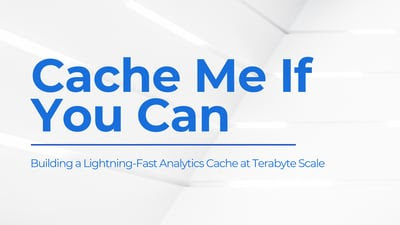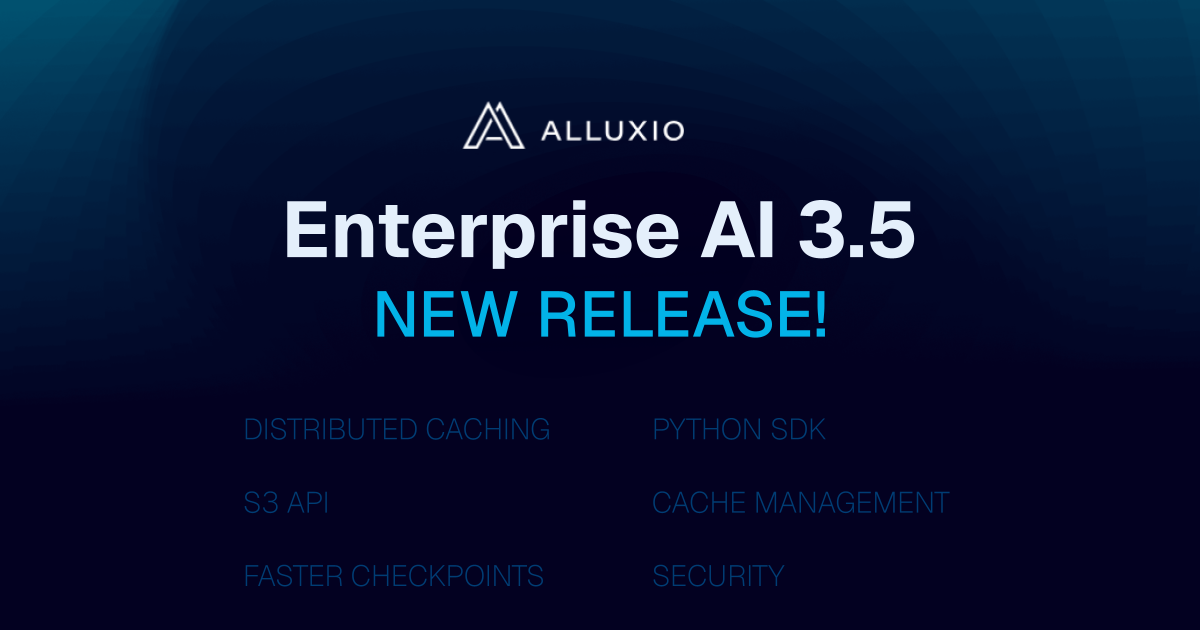Blog

Suresh Kumar Veerapathiran and Anudeep Kumar, engineering leaders at Uptycs, recently shared their experience of evolving their data platform and analytics architecture to power analytics through a generative AI interface. In their post on Medium titled Cache Me If You Can: Building a Lightning-Fast Analytics Cache at Terabyte Scale, Veerapathiran and Kumar provide detailed insights into the challenges they faced (and how they solved them) scaling their analytics solution that collects and reports on terabytes of telemetry data per day as part of Uptycs Cloud-Native Application Protection Platform (CNAPP) solutions.

With the new year comes new features in Alluxio Enterprise AI! Just weeks into 2025 and we are already bringing you exciting new features to better manage, scale, and secure your AI data with Alluxio. From advanced cache management and improved write performance to our Python SDK and S3 API enhancements, our latest release of Alluxio Enterprise AI delivers more power and performance to your AI workloads. Without further ado, let’s dig into the details.
.png)



Xi Chen, Senior Software Engineer at Tencent & Top 100 Alluxio open source project contributor, explains the block allocation policy of Alluxio at the code level.

This blog was originally published on the website of NetApp: https://www.netapp.com/blog/modernize-analytics-workloads-netapp-alluxio/
Imagine as an IT leader having the flexibility to choose any services that are available in public cloud and on premises. And imagine being able to scale your storage for your data lakes with control over data locality and protection for your organization. With these goals in mind, NetApp and Alluxio are joining forces to help our customers adapt to new requirements for modernizing data architecture with low-touch operations for analytics, machine learning, and artificial intelligence workflows.
.jpeg)
In the previous blog, we introduced Uber’s Presto use cases and how we collaborated to implement Alluxio local cache to overcome different challenges in accelerating Presto queries. The second part discusses the improvements to the local cache metadata.
.jpeg)
This article shares how Uber and Alluxio collaborated to design and implement Presto local cache to reduce HDFS latency.
.jpeg)
This article introduces the design and implementation of metadata storage in Alluxio Master, either on heap and off heap (based on RocksDB).

.jpeg)
Raft is an algorithm for state machine replication as a way to ensure high availability (HA) and fault tolerance. This blog shares how Alluxio has moved to a Zookeeper-less, built-in Raft-based journal system as a HA implementation.
.jpeg)
With machine learning (ML) and artificial intelligence (AI) applications becoming more business-critical, organizations are in the race to advance their AI/ML capabilities. To realize the full potential of AI/ML, having the right underlying machine learning platform is a prerequisite.
.jpeg)
This article will discuss a new solution to orchestrating data for end-to-end machine learning pipelines that addresses the above questions. I will outline common challenges and pitfalls, followed by proposing a new technique, data orchestration, to optimize the data pipeline for machine learning.

.png)